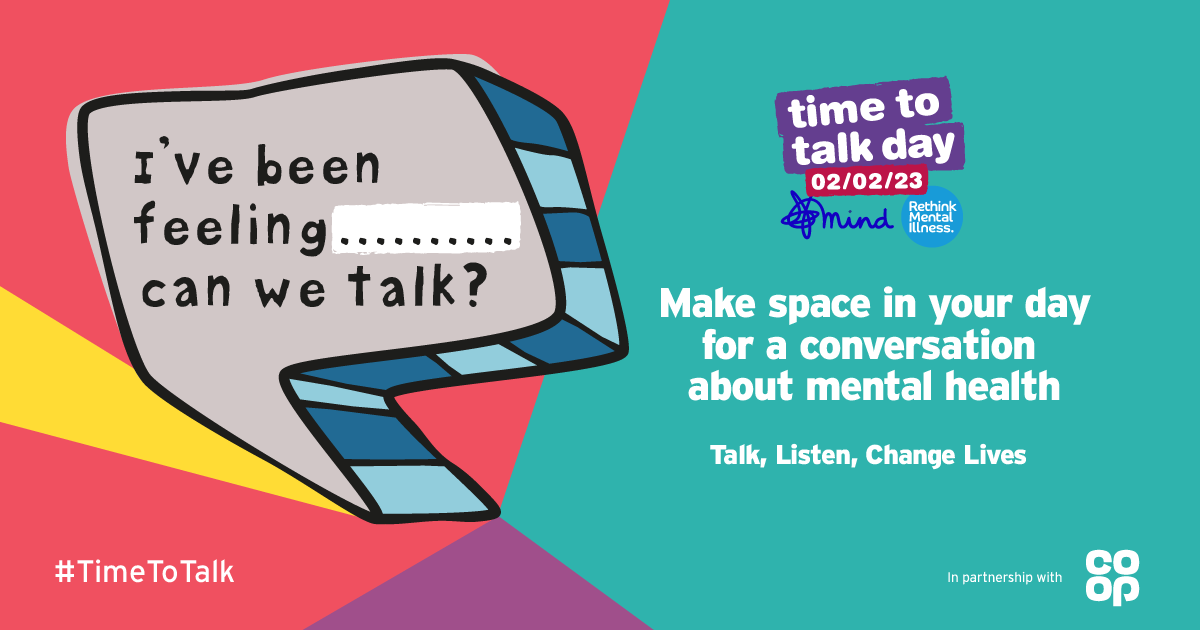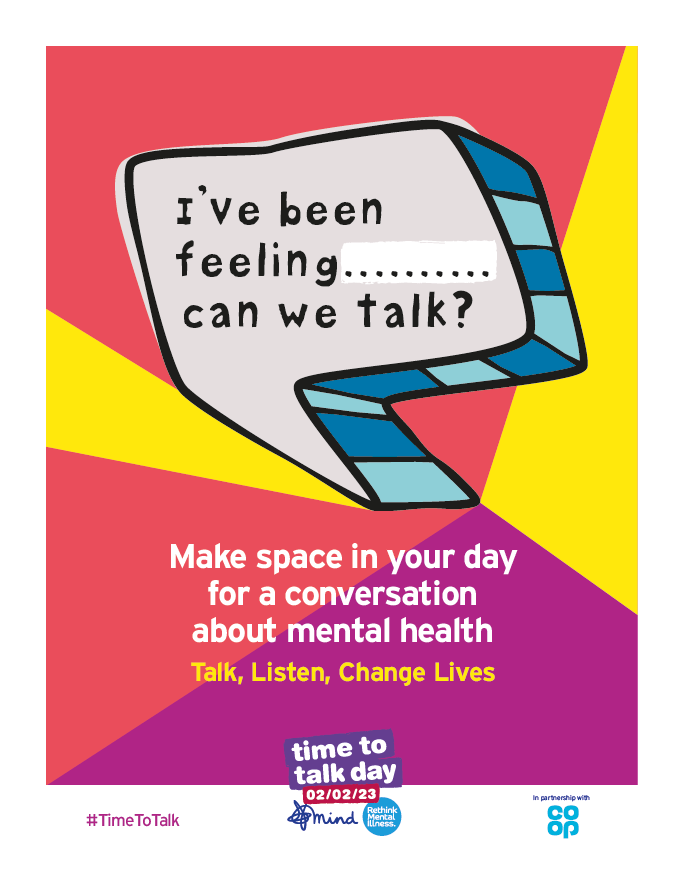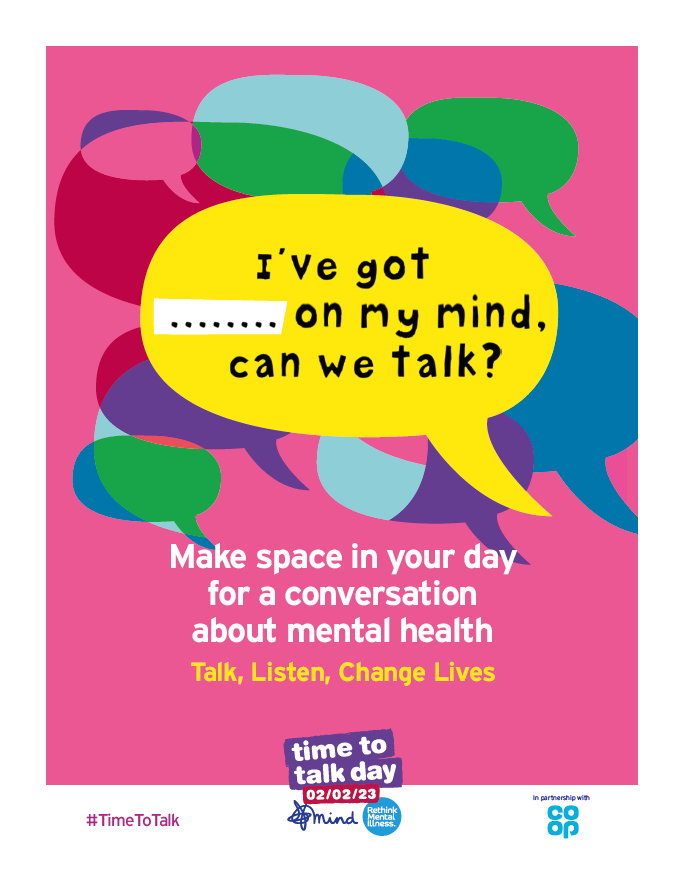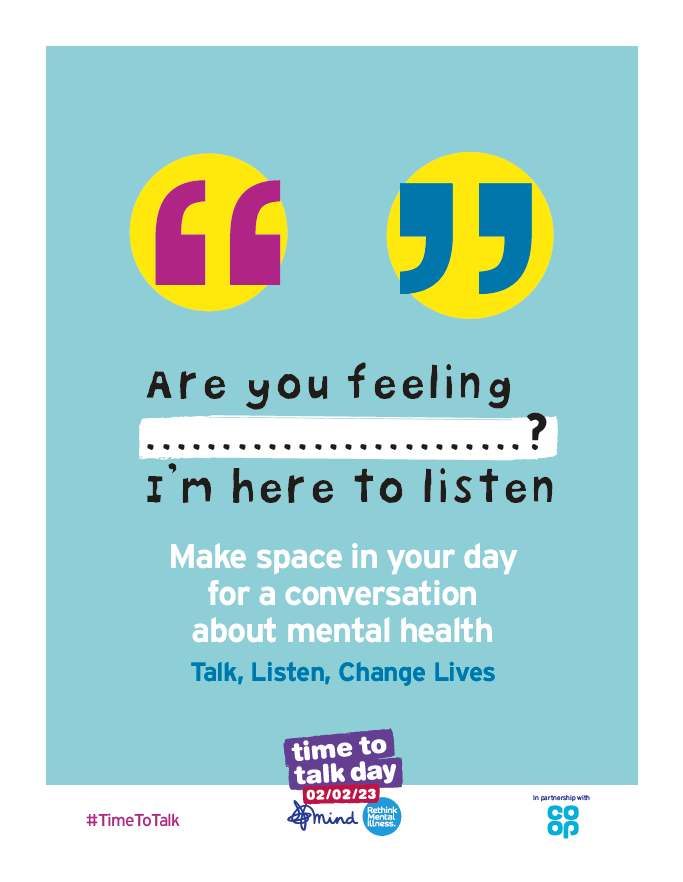Time to Talk Day: Make space in your day for a conversation about mental health!
Time to Talk Day is the nation's biggest mental health conversation. Every year, it's a day for friends, families, communities, and workplaces to come together to talk, listen, and share. Organised by Mind and Rethink Mental Illness in partnership with Co-op, this year’s campaign is running on Thursday 2nd February 2023.
Talking about mental health isn't always easy, but every conversation has the power to make a real difference. Each exchange we have with someone we know about the subject contributes to reducing mental health stigma, as well as helping to create supportive communities in which we can talk openly about mental health and feel empowered to seek help when we need it.
1 in 4 of us will experience a mental health problem in any given year. Too many of us are made to feel isolated, worthless, and ashamed. But by talking about mental health, we can bust myths and break down barriers.
How to get involved:
To help you take part, the #TimeToTalk team has created a host of free materials to start mental health conversations in your community, workplace, or school. You’ll find posters, postcards, social media tiles, conversation starters, bunting, and much more.
Talking tips:
How will you have your conversation about mental health? A sticky note on a colleague’s desk, an evening video call with a family member, or a side-by-side with a friend over a sandwich – however you do it, start your conversation this Time to Talk Day.
Not sure how to start? Here are a few tips to help you break the ice and kick off the conversation:
Find a safe space, without distractions, in which to have your conversation.
Ask open-ended questions, for example, “How are you feeling?” instead of “Are you sad?”
Listen carefully to what the other person is saying, without judgment.
Ensure you understand what they are feeling; repeat back what they said to clarify.
Don’t make any further assumptions on their potential feelings and emotions.
Respect their boundaries with regard to how much or how little they want to share.
Discuss any self-care practices that might be relevant, such as exercise or journalling.
Offer to help with seeking professional advice, support, and information.
Know your limits – remember that it’s important to take care of yourself as well!
And remember, if you need someone to talk to, Devon Mind is always here to support you. You can find out more about registering for our services here. We won't give up until everyone experiencing a mental health problem gets the support and respect they deserve.





